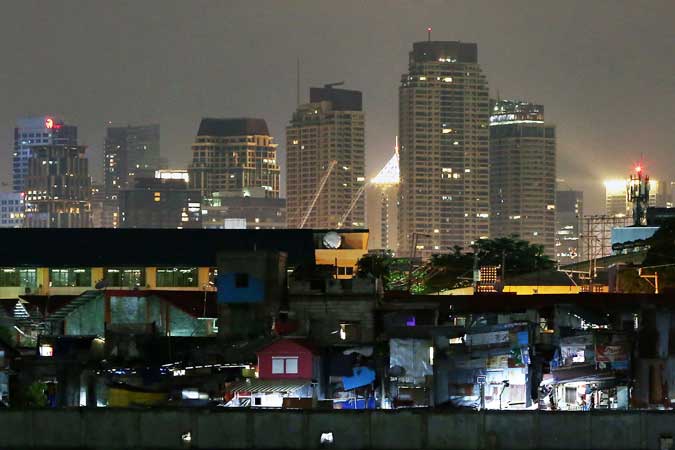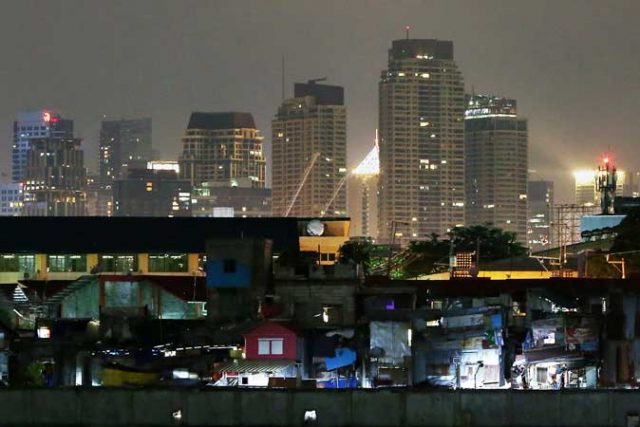
Amid underspending in first half: Budget deficit falls below ceiling – BusinessWorld

By Beatrice M. Laforga, Reporter
THE PHILIPPINES fell short of its budget deficit ceiling in the first half after missing its spending target by 10%, prompting analysts to warn that underspending could hamper the economy’s recovery.
Preliminary data from the Bureau of the Treasury (BTr) showed fiscal gap reached P716.1 billion for the January-June period or 30% lower than the P1.018 trillion programmed for the period.
However, the budget deficit was 28% larger than the P560.4-billion deficit seen in first six months of 2020.
The first-half fiscal deficit was below the program as the government fell short of its spending target by 10% but exceeded the six-month revenue goal by 5%.
In June, the budget balance swung to a P150-billion deficit from P1.8-billion surplus in the same month last year largely due to base effects. The Bureau of Internal Revenue (BIR) moved the April 15 deadline for income tax filing to June last year due to the lockdown.
Total spending increased by 13.2% year on year to P395.4 billion in June. Primary expenditures, or total spending minus interest payments, grew by 14% to P365.5 billion, while interest payments also increased by nine percent to P29.9 billion.
This pushed overall government spending for the six-month period to P2.206 trillion, up 9.6% from P2.013 trillion a year ago. However, this was 9.56% short of the P2.44-trillion target for the first half.
“This is mainly due to the timing of subsidy releases awaiting requests from the concerned state-run firms, the pending enactment of the GUIDE (Government Financial Institutions Unified Initiatives to Distressed Enterprises for Economic Recovery) bill, outstanding checks as of end-June which are yet to be encashed by contractors or suppliers of line agencies, as well as interest savings,” the BTr said.
Primary spending totaled P2 trillion in the six-month period, up by 9.4% year on year, while interest payments jumped by 11% to P209 billion.
In June, overall revenues declined by 30% to P245.6 billion from P351 billion a year ago. The income tax filing deadline was moved to June 2020, hence the BIR’s unusually higher revenues for the month.
Tax revenues, which accounted for 90% of the total, dropped by 34.6% to P213.5 billion while non-tax income jumped by 31% to P32 billion.
BIR saw collections slide by 43.6% to P159 billion in June, while Customs posted 23% increase in revenues to P52.2 billion. Other tax-collecting offices generated P1.9 billion that month, up 49% year on year.
Non-tax revenues from the BTr surged by 84.2% year on year in June to P20.8 billion while other offices reported a 14% drop in income to P11.3 billion.
“The P12.2 billion year-on-year increase in dividend remittances as well as higher remittance of National Government share from PAGCOR (Philippine Amusement and Gaming Corp.) profit drove the growth for the month,” the Treasury said.
Despite the decline last month, total revenues still increased by 2.55% to P1.49 trillion in the first half, and surpassing the P1.421-trillion target by 4.82%.
This was largely due to the 10% increase in tax collections worth P1.344 trillion, but was slightly tempered by the 38% decline in non-tax revenues to P147 billion.
Taxes collected by the BIR rose by 8% to P1.032 trillion in the first half. Customs saw its revenues jump by 19% to P301.7 million, while other offices generated 21% higher collections at P10 billion.
For non-tax revenues, the BTr saw its income decline by 38% year on year to P81.6 billion, whereas other income from non-tax sources grew by 25% to P65.3 billion.
UNDERSPENDING
Analysts warned that the muted spending in the first half could derail the economy’s recovery.
State spending was only able to rise modestly last month, while the 2.55% increase in revenues showed collections remain constrained, ING Bank N.V. Manila Senior Economist Nicholas Antonio T. Mapa said via e-mail on Tuesday.
Mr. Mapa said the missed spending target could also signal softer a full-year gross domestic product (GDP).
“With the year-to-date deficit at approximately 8% of GDP, it’s getting more challenging to keep the debt to GDP level below 60% for the year. This could trigger a credit rating downgrade as early as the first quarter of 2022,” Mr. Mapa said.
“The economy had been counting on government spending to fill the void left by the private sector and with this development. We understand that authorities have struggled to get out badly needed expenditure to help support the economy, manifested in underspent Bayanihan funds, and we expect this trend to continue in the second half,” he added.
For University of Asia and the Pacific Senior Economist Cid L. Terosa, the government may have fallen short of its spending program due to delays in releasing and earmarking of funds for economic recovery programs.
“This may temporarily stall the government’s drive to fast track economic growth, but I believe spending in the second half will regain lost ground particularly because of last-ditch efforts by the current administration to set the economy on track to achieve economic recovery,” Mr. Terosa said via e-mail.
Economic mangers capped this year’s budget deficit at 9.3% of GDP.
They also set a 6-7% growth target for the year on expectations that the economy will bounce back strongly from last year’s 9.6% record slump.
Stay connected with us on social media platform for instant update click here to join our Twitter, & Facebook
We are now on Telegram. Click here to join our channel (@TechiUpdate) and stay updated with the latest Technology headlines.
For all the latest Education News Click Here
For the latest news and updates, follow us on Google News.


